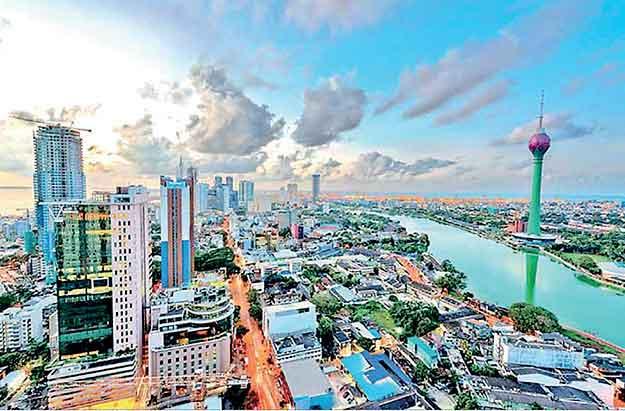02 Dec 2024 - {{hitsCtrl.values.hits}}

Inflation in the Colombo district fell further into deflationary territory in November, as expected by the Central Bank last week, as non-food prices fell sharply while food prices decelerated from a month ago.
The Colombo Consumer Price Index (CCPI), the mostly watched price gauge, fell 2.1 percent in the year through November 2024, faster than the 0.8 percent decline in prices seen through October 2024.
The November Colombo inflation print extends the current stretch of deflation into its third consecutive month which the Central Bank said would likely to continue through the most of the first half of next year.
This in fact gave the Central Bank more room to effectively cut rates last week by 50 basis points as they set their maiden key monetary policy tweaking tool, the Overnight Policy Rate, at 8.00 percent. This targets the Call Money Rate in the banking sector, as they wanted to stoke more demand and bring back prices to their 5.0 percent target, which is expected to take place in the back half of next year.
The prices measured on a monthly basis meanwhile fell 0.3 percent in November from a month ago, extending its months-long streak of declines to the fifth consecutive month.
The current spate of consumer price declines were largely aided by the cuts to both fuel prices and electricity and water tariffs, the same elements which shot the inflation to 70 percent two years ago when the authorities untied such prices from State subsidies.
This helped the government to fix the budget in no time and State energy and power utilities behemoths to return whopping profits at the expense of small businesses which went out of business and households which had to slash their electricity usage dramatically while footing hefty bills.
The November 2024 deflation was supported again mainly by repeated cuts to the fuel prices which reduced bus and three-wheel fares, bringing down what people have to spend for their transport.
This brought down the annual prices of non-food basket by 3.3 percent through November 2024, at a faster pace than the 1.6 percent decline through October. The monthly prices too declined by 0.3 percent from 0.5 percent decline seen in October.
The prices of food basket also decelerated to 0.6 percent in the year through November 2024 from 1.0 percent increase through October. The monthly food prices too fell by 0.1 percent from 0.6 percent in October.
Meanwhile the so-called core prices, measured barring the often volatile food, energy and transport, recorded 2.7 percent in the year through November 2024, decelerating from 3.0 percent through October 2024, reflecting further softening in the underlying inflation in the economy.
22 Dec 2024 5 hours ago
22 Dec 2024 5 hours ago
22 Dec 2024 7 hours ago
22 Dec 2024 8 hours ago
22 Dec 2024 8 hours ago